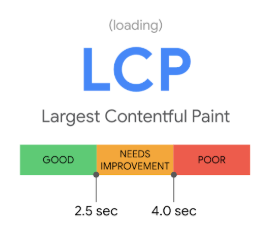A significant part of any website marketing strategy is to consider page experience and the overall user experience (UX) of a site, as this can help improve visitor engagement and, ultimately, conversion rate. Google recognises this and, since they also want to provide their searchers with the best user experience from the results, they are including this as a factor in ranking performance.
In the past few years, Google has added a variety of user experience criteria as factors in the ranking results, such as how quickly pages load and mobile-friendliness. In May, Google’s Chrome team announced Core Web Vitals, which are a set of metrics related to speed, responsiveness and visual stability, to help site owners measure user experience on the web. The Search team will also be using these metrics as part of the ranking factors they consider, to provide a holistic picture of the quality of a user’s experience on a web page.
The page experience signal will measure some key aspects of how users perceive the experience of interacting with a web page. Google believes that optimising for these factors makes the web more beneficial for users across all web browsers and helps sites evolve towards user expectations on mobile (which is where the majority of searches now take place).
 The Core Web Vitals are a set of real-world, user-centred metrics that quantify key aspects of the user experience, such as load time, interactivity, and the stability of content as it loads. Google will be combining these metrics with their existing Search signals for page experience, including mobile-friendliness, safe-browsing, HTTPS-security, and intrusive interstitial guidelines, to provide an overall assessment of page experience, that will then be part of their ranking criteria.
The Core Web Vitals are a set of real-world, user-centred metrics that quantify key aspects of the user experience, such as load time, interactivity, and the stability of content as it loads. Google will be combining these metrics with their existing Search signals for page experience, including mobile-friendliness, safe-browsing, HTTPS-security, and intrusive interstitial guidelines, to provide an overall assessment of page experience, that will then be part of their ranking criteria.
Google also says that they will incorporate more page experience signals on a yearly basis to both further align with evolving user expectations and also to increase the aspects of user experience that they can measure. By adding page experience to the hundreds of signals that Google considers when ranking search results, they are aiming to help people more easily access the information and web pages they’re looking for, and support site owners in providing an experience users enjoy.
To help site marketers and developers, Google is updating their PageSpeed Insights tool to include Core Web Vitals information and recommendations, plus Google Search Console will also provide a dedicated report to help site owners quickly identify opportunities for improvement.
However, it’s also worth noting that while page experience metrics are important, Google will still prioritise pages with the best information overall, even if some aspects of page experience are subpar. A good page experience doesn’t override having great, relevant content, but in cases where there are multiple pages that have similar content, page experience becomes much more important for visibility in Search.
In terms of timing, Google says that these ranking changes won’t happen before next year, particularly with the COVID-19 issues affecting many companies at the moment. They will be providing at least six months notice before they’re rolled out, although the tools to help assess these metrics will be available now to help developers see what action might need to be considered.
If you’d like to know more about the page experience factors and how to assess your own website, please contact us for details.
